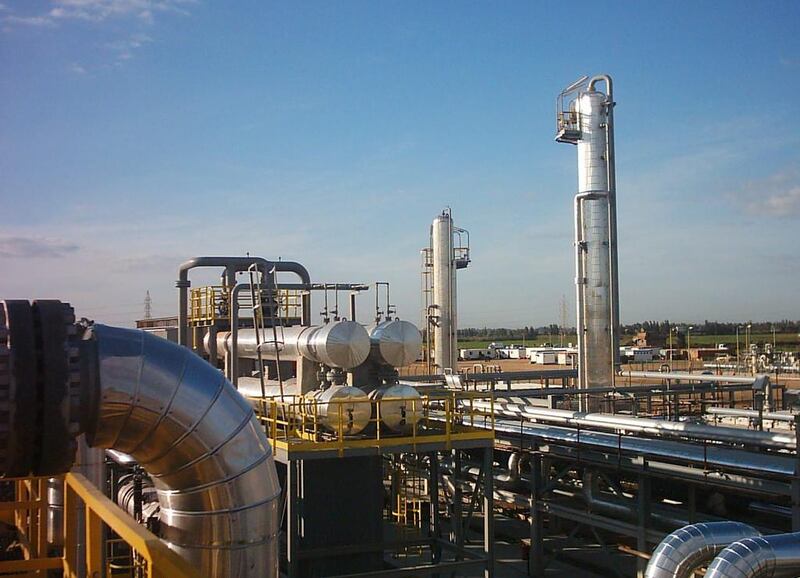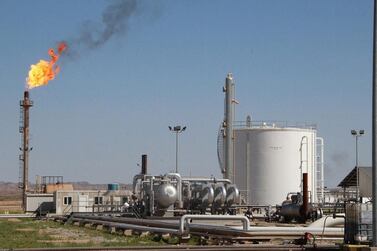Dana Gas, the Sharjah-based energy company, entered into a "binding agreement" with Egypt’s IPR Wastani Petroleum to sell its onshore Egyptian oil and gas assets.
The $236 million deal with Egyptian exploration and production firm, a part of IPR Energy Group, also includes contingent payments, Dana Gas said on Sunday in a statement to the Abu Dhabi Securities Exchange, where its shares trade.
Dana Gas expects the transaction, which is subject to the Egyptian Ministry of Petroleum and Mineral Resources’ approval, to be completed early next year. The company will use proceeds of the deal to reduce debt and for general corporate purposes, it said.
The sale of assets in Egypt is in line with the company’s goal of strengthening its balance sheet and focusing on the development of its assets in the Kurdistan Region of Iraq (KRI).
“Completion of the sale process will allow us to strengthen our balance sheet and focus our attention on the development of … assets in the KRI, of which our current share of reserves are over 1 billion barrels of oil equivalent,” Patrick Allman-Ward, chief executive of Dana Gas, said.
“The quality of our remaining assets in Egypt are excellent and we retain an interest in two exploration concessions.”
The transaction includes sale of Dana Gas’ 100 per cent working interests in the El Manzala, West El Manzala, West El Qantara and North El Salhiya onshore concessions and associated development leases. The deal includes a base cash consideration of $153m, including the net working capital associated with the assets and contingent payments of up to $83m, it said.
Dana Gas, through its wholly owned subsidiary Dana Gas Egypt, will retain its interests in its onshore and offshore exploration concessions of El Matariya (Block 3) and North El Arish (Block 6).
“Over the last 12 years, Dana Gas has delivered on a tremendous track record … in Egypt and increasing our production by 50 per cent,” Mr Allman-Ward said.
“Our activities and investments in Egypt’s gas sector have supplied additional gas for power generation displacing heavy fuel oil thereby contributing significantly to the Egyptian economy.”
Dana Gas has been looking to sell its Egyptian assets for some time, but negotiations were delayed due to restrictions Covid-19 placed on travel and communications, the impact of the pandemic on the world economy and the resulting sharp drop in global oil and gas prices, the company said.
"We believe Dana Gas will utilise the proceeds of this sale to reduce its debt facilities, the most notable of which was the $90m secured 10 days ago to fund the sukuk repayment," Ahmed Maher, an analyst with EFG Hermes said in a note following the sale announcement.
After securing the $90m facility from Mashreq Bank earlier this month, Dana Gas said it intended to fully redeem the outstanding total for its sukuk, which currently stands at $309m, as it matures at the end of this month.
In terms of its remaining assets in Egypt, the company could either seek a separate sale or conduct further exploration activities, Mr Maher added.
"Dana Gas will have zero-producing assets in Egypt upon completion of the sale agreement. It is worth noting that Block 6 saw an unsuccessful exploration campaign last year. But management reiterated its view that Block 6 remains 'highly prospective'," he said.
Dana Gas said it will record an impairment in the third quarter of this year to reflect the Covid-19 pandemic and “associated negative economic effects”, which is consistent with reported actions this year by most international oil and gas companies.
In August, the company swung to a second-quarter net loss of $36m a net profit of $105m in the year-earlier period, due to impairment charges in the wake of lower oil prices.








